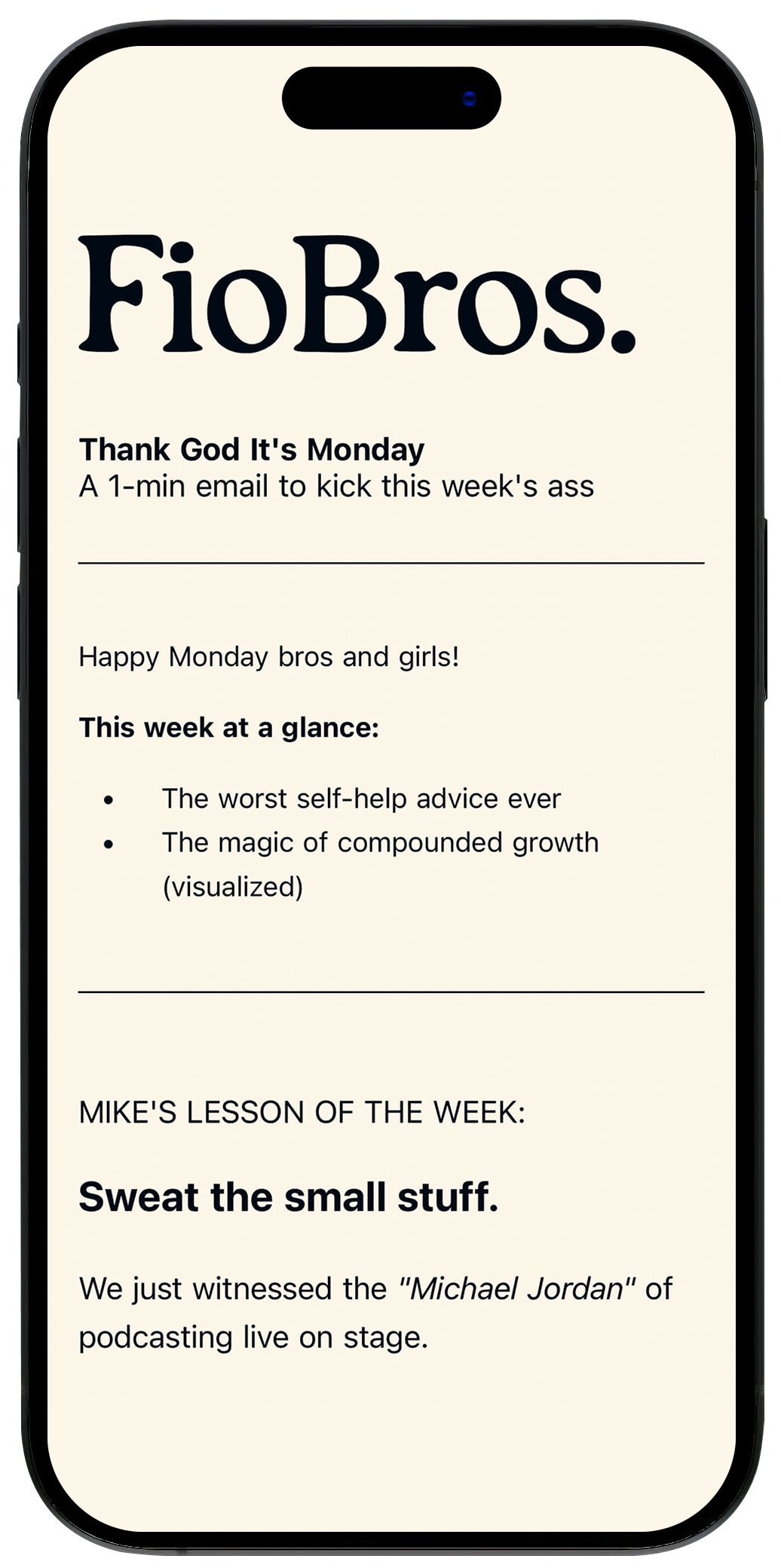The Good Life
Quick Background
Harvard researchers conducted the world's longest scientific study on happiness, where they tracked the same individuals over 84 years, asking thousands of questions and taking hundreds of measurements to find out what really keeps people happy and healthy. The answer they found? Good relationships.
You should read this book if...
- You're interested in the science of happiness
- You love science-backed self-help books
- You feel like your relationships need more attention
3 Big Ideas
1) If you want to be happy at work, find a best friend.
"By the time the average individual reaches 80 years of age, they will have spent 8,800 hours socializing with friends, about 9,500 hours in activities with an intimate partner, and more than 112,000 hours (13 years!) at work.”
"If we feel disconnected from others at work, that means we feel lonely for the majority of our waking hours."
"Research has shown that people who have a best friend at work are more engaged than those who don't"
In summary, work takes up most of our lives. And research says that our happiness at work is more dependent on WHO we work with, not WHAT we work on.
2) Actionable Exercise: Take inventory of your relationships.
"The frequency and the quality of our contact with other people are two major predictors of happiness."
"'Who is in my life?' It's a question that most of us, amazingly, never bother to ask ourselves. Even making a basic list of ten people who populate the center of your social universe can be illuminating."
While reading this book, we made a list of all the people that are important in our lives - and that exercise alone was illuminating.
But then we took it a step further... we asked ourselves 2 questions:
- "Who on this list do we need to spend less time with?"
- "Who on this list do we need to be intentional about spending more time with?"
We came to realize that we weren't seeing one of our best friends, someone who added a tremendous level of happiness and connection to our lives, nearly enough. So to fix the problem we set up a weekly calendar meeting with him.
This exercise took just 10 minutes, but we believe the small investment will pay us dividends for a lifetime of happiness.
3) Happiness is not the absence of problems. It's a feeling of CONNECTION.
"Thousands of stories from the Harvard Study show us that the good life is not found by providing ourselves with more leisure and ease. Rather, it arises from the act of facing inevitable challenges, and being able to lean on others when we need them most.
The Good Life happens as we learn how to love, how to open ourselves to being loved. As we grow from our experiences, as we stand in solidarity with others through the inevitable strings of joys and adversities in every human life."
We catch ourselves all the time thinking things like, 'I'll be happy when I reach financial freedom' or 'I'll be happy when I reach a certain weight.'
But from studying thousands of human lives over an 84 year span, Harvard researches can say with certainty that feelings of true happiness don't come from reaching a destination.
True happiness comes from enjoying the journey - or more specifically, connecting with the people we get to share it with.
Level up your mindset — every Monday
Sign up for TGIM, a free 1-minute email to kick the week’s ass






.jpg)


.jpg)


